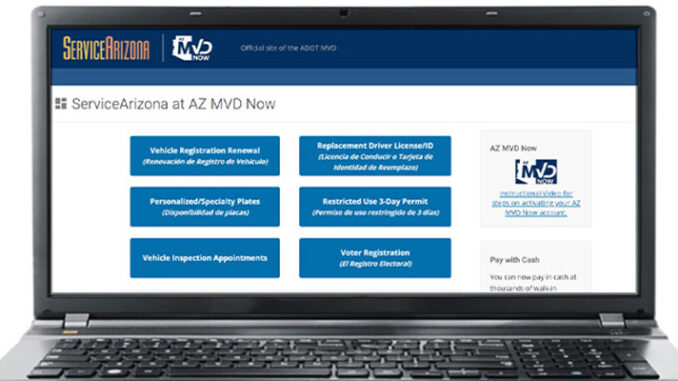
A disabled war veteran forced by Maricopa County elections officials to vote a provisional ballot that was rejected in the 2022 General Election appears to have not knowingly registered to vote in another county, despite suggestions to the contrary by elections officials.
The voter, who Arizona Daily Independent is identifying simply as Howard, cast ballots from the same address in Maricopa County during the 2018 and 2020 elections. But when Howard tried to vote in November 2022, he was told he was no longer registered in the county.
And because Howard’s Maricopa County registration was cancelled, instead of simply inactive, his offer of proof of residence on election day made no difference.
Last week the Maricopa County Recorder’s Office seemingly pointed the finger at Howard for his ballot not being counted. The county asserted its system did “what it’s supposed to do” by cancelling Howard’s registration in 2021 because he had purportedly registered to vote in another county.
It is a position County Recorder Stephen Richer’s office repeated Monday, stating that Howard’s registration “was canceled because he submitted a new registration form to Navajo County.”
But that statement is not fully supported by a review of public records.
In fact, those records suggest a disputed process approved in 2020 by then-Arizona Secretary of State Katie Hobbs involving ADOT’s Motor Vehicle Department and the Service Arizona website actually led Howard’s vote not counting.
And there is no procedural safeguard in state law to protect similar voters.
In September 2021, Howard went to an ADOT – MVD Office in Navajo County while spending the summer at a secondary residence. He needed to obtain a State Identification Card after being forced to give up driving due to medical issues.
Unknown to Howard, his request for the state ID card triggered ADOT’s Service Arizona portal to create and submit a voter registration form registering him to vote in Navajo County. The signature displayed on the form was “pulled” or copied from the data file used to order Howard’s state ID card.
The system-generated form was reported to the Navajo County Recorder’s Office. This then caused the Maricopa County Recorder’s Office to cancel Howard’s right to vote there based on the “new” registration.
But no notice was sent to Howard at the time by either county recorder. It was not until May 2022 that Howard learned that the system had registered him to vote in Navajo County, thanks to a letter Recorder Michael Sample sent all voters with information on the upcoming 2022 election cycle.
Howard immediately notified Sample in writing that his official residence was still in Maricopa County. Sample’s office quickly cancelled Howard’s voter registration and confirmed the action by sending Howard a letter to his Maricopa County address.
At that point, Howard had no reason to believe the Navajo County registration was anything more than a simple clerical error. After all, he had received no notice from Maricopa County of being dropped in 2021.
There are 11 situations addressed in Arizona Revised Statutes 16-165(A) under which a county recorder shall cancel a registration. These include upon request from the voter, upon confirmation the voter is dead, and upon notification the voter has been recently convicted of a felony.
The law even mandates in several of the situations that a county recorder first send a notice to a voter “by forwardable mail” of an impending cancellation before the cancellation can occur.
More problematic, however, is ARS 16-165(A)(11) and (B) which involve cancelling a voter’s registration in County A upon confirmation from County B that the voter is now registered in County B. Nothing in those statutes require either county to notify the voter that the County A registration has been cancelled.
Which helps explain why Howard was left bewildered by the situation. And why he worried something he had done last summer when requesting temporary mail forwarding from the U.S. Postal Service led to his inability to vote.
Richer’s office was clear Monday that the issue had nothing to do with the post office.
“This was the result of an EZ voter registration form that was submitted through ServiceArizona,” said Sierra Ciaramella, a senior advisor to Richer. “This came to us from the statewide voter registration system when Navajo County processed his new voter registration form. This is a function of the statewide system to ensure voters are not registered in multiple counties.”
Richer did not respond to a request for comment on whether a simple one-sentence advisory could have been included on the Navajo County notice to Howard last year, alerting him to the need to reregister.
Sample, the Navajo County recorder, said Monday he had no problem with such an advisory being added to the cancellation confirmation. It was a position Cochise County Recorder David Stevens agreed with, although whether the recorders can undertake the change individually is unclear.
The potential for mistakes and unintended new voter registration forms being generated by Service Arizona is troubling to one political consultant.
“Arizona law has several provisions to protect voters from having their registration unduly cancelled without notice,” said Constantin Querard. “But in a situation where you have one government entity kicking a voter off the rolls based solely on the word of another government entity, there is no advance notice or even post-notice to the voter.”
Querard added that the lessons gleaned from Howard’s experience with Service Arizona should not be dismissed.
“It is something county recorders and the Arizona Legislature should reconsider as soon as possible, because governments make mistakes all the time,” he said.
HEAR FROM HOWARD:
